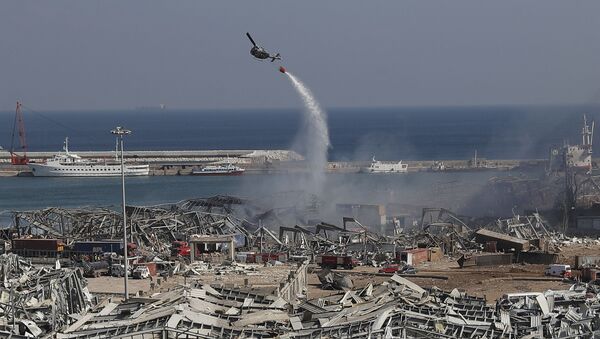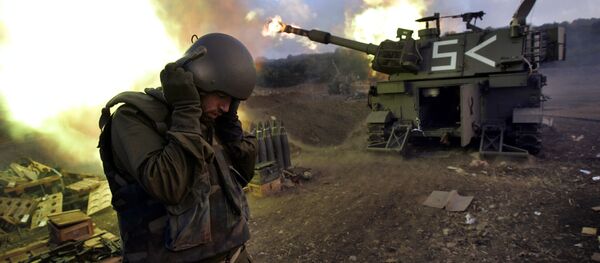Several countries have offered their assistance to Lebanon after the country's capital was rocked by a powerful blast on Tuesday evening that flattened much of the city's port and caused damage to thousands of houses in the area.
The government has already announced a day of mourning for the victims of the blast, which claimed the lives of more than a hundred people and injured thousands of others.
Israel to the Rescue?
Israel was among the countries that offered a helping hand to Lebanon, "approaching the Lebanese authorities through a number of channels", with medical and humanitarian assistance to tackle the disaster.
President Reuven Rivlin offered his condolences to the Lebanese people, whereas the heads of several Israeli hospitals said they would be willing to receive patients from Beirut and treat them in medical centres across the country.
Improbable Cooperation
Lebanon, however, was allegedly not impressed and although officials haven't made any statements on the matter yet, Mohammed Kleit, a Beirut-based political analyst, says it would be "extremely far-fetched" to imagine that his country would be willing to accept such a gesture.
A Lebanese law introduced in 1955 prohibits citizens of the country from having any business or commercial ties with Israel. Additionally, Article 278 of the criminal code stipulates that it is illegal to maintain any contacts with the Jewish state and forbids interaction with Israelis.
That's why, Kleit thinks, receiving help from "an enemy state" would be out of the question, especially given the fact that other countries, including Iran, Turkey, and a number of Western states, have already expressed their intention to help.
"It's basically impossible to bridge anything between the two states, considering that there are influential political parties in the government and [the country's] parliament that oppose any type of relations with Israel, even at times of crises [like the one we see now - ed.]".
By "influential players", Kleit refers to Hezbollah, a Shiite militia backed by Iran that entered the Lebanese political arena back in the 1990s and that has been part of the country's parliament since 2005.
Together with other religious parties, they now form the biggest bloc in the Lebanese parliament and "call the shots" on domestic and foreign affairs; and that means that rapprochement with Israel is unlikely to be on the table, primarily because of the bloody history surrounding the two.
In 1982, when Israel waged a war against Lebanon in a bid to minimise Syria's influence in the area and keep Palestinian fighters who found refuge on Lebanese soil, at bay from the Jewish state, it was Hezbollah that led the military struggle, eventually driving the IDF out from the war-torn country in May 2000.
But tensions didn't end there. After Israel's pull-out, Hezbollah accumulated an impressive arsenal of weapons, making it one of the strongest militias in the region, and it has used that ammunition to challenge the Jewish state.
In 2006, after an ambush on two IDF patrol vehicles, Hezbollah fighters killed three Israeli soldiers. The bodies of two others were kidnapped, triggering the Second Lebanon War, a conflict that left deep scars in both Israeli and Lebanese societies.
"There is no trust between Lebanon and Israel considering that the latter never respected any treaty or any UN resolution to resolve tension and military actions in the region; not only with Lebanon, but also with other neighbouring players such as Syria and Gaza", said Kleit, stressing that the extension of help has zero chance to ease the decades' long hostilities.




